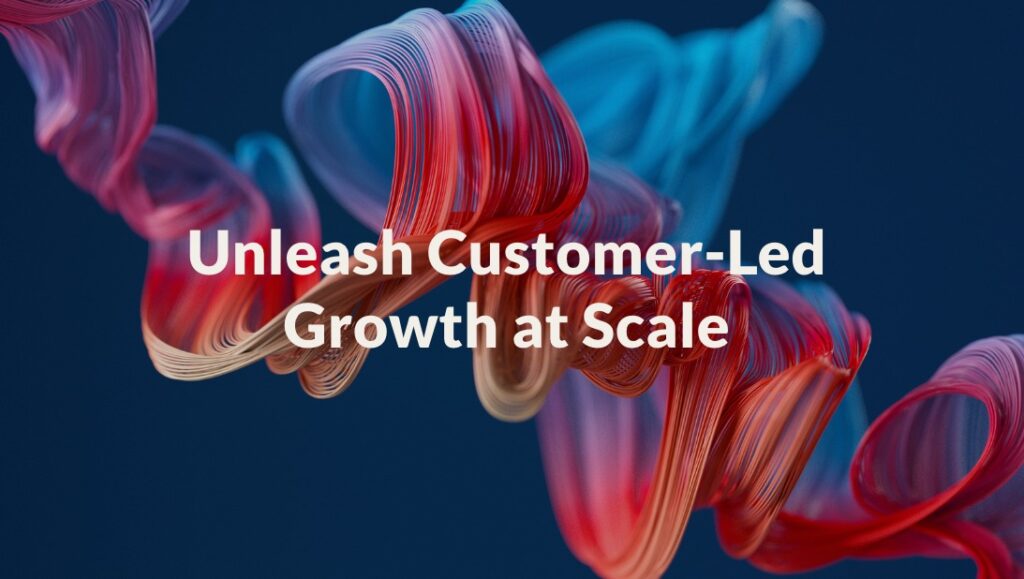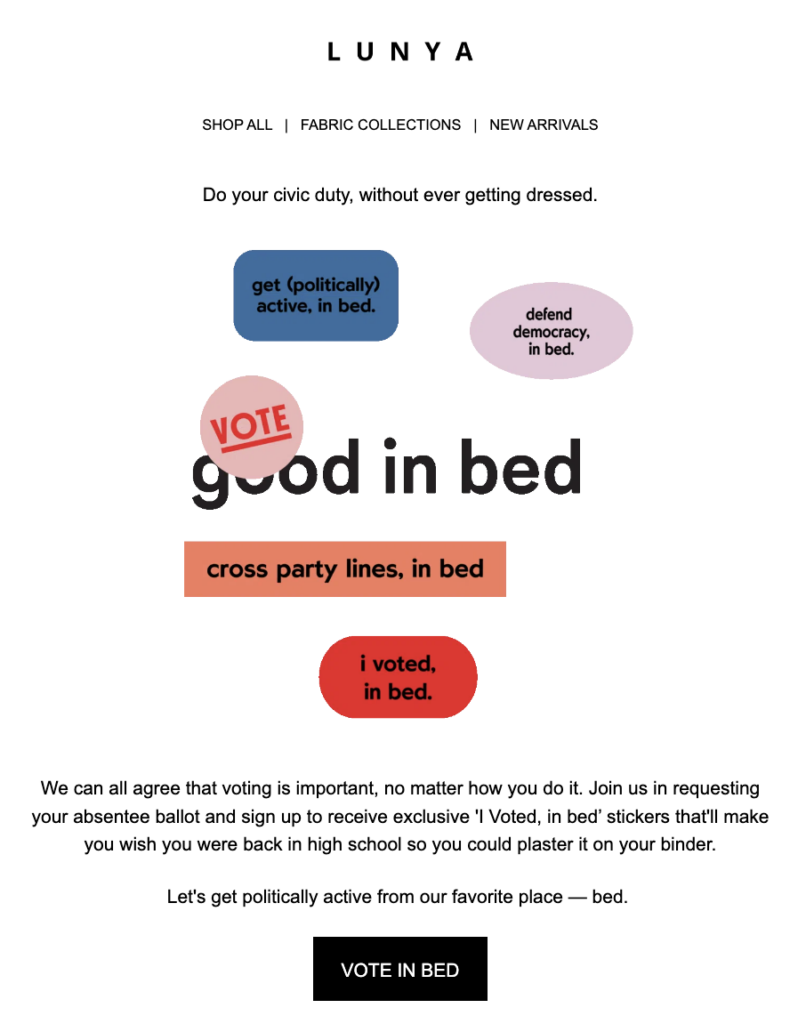There’s no denying 2020 completely shook up consumer habits – and forced DTC brands to change the way they market to customers. Even though physical stores have reopened, we still face an economic downturn that’s putting financial strain on consumers.
As much as 51% of US consumers believe the economy will be worse six months from now – and the way they spend reflects this fear. People look less toward luxury in favor of sustainably minded brands at affordable prices and are much more likely to trust a person on TikTok who embodies their own values over big-budget advertising or a high-profile influencer with millions of followers.
If DTC brands can no longer rely on exclusivity and status to generate sales, what can they do? We’ve found the brands that are most successful are transparent about their production processes and pricing, favor sustainability, and focus on community building.
We break down four direct-to-consumer clothing brands that embody these traits and are seeing massive growth, despite economic uncertainties.
Summersalt Spreads Joy and Builds Brand Affinity
Summersalt is quickly becoming a swimwear staple, with a 35% increase year-over-year in sales. That’s largely because the brand focuses on body positivity with its mood-boosting marketing campaigns that build brand affinity.
When Lori Coulter co-founded the company in 2017, she wanted to create inclusive swimwear. The company took a scientific approach to its swimwear design, gathering 1.5 million body measurements by digitally scanning the bodies of 10,000 women. Summersalt based the sizing of its swimwear on this data, so the pieces have an excellent fit for virtually every body type from size 0 to 24.
Summersalt’s Simpler Summer campaign features pared-down swimsuits for pared-down summer activities, like running through the sprinklers or enjoying a glass of lemonade. The campaign emphasizes these simple warm-weather joys – the kind that even a lingering global pandemic can’t cancel.
Source: YouTube.com/Summersalt
During the pandemic, Summersalt’s social media team noticed that customers seemed anxious and sad on Facebook and Instagram. In response, the company launched a free emotional-support hotline called Joycast.
This service helps to connect with and cheer up loyal fans. Anyone can text the Joycast line, and a member of Summersalt’s Customer Happiness team will respond with puppy gifs, meditation videos, or other curated self-care suggestions. Summersalt’s emotional-support service exists to help people, which, in turn, fosters good customer experiences.
These two initiatives help Summersalt walk a tricky line. With an unstable economy and a decline in online shopping, few consumers are in the mood to shop for $95 swimsuits. But the Joycast line helped the company stay on customers’ radars and provide vital emotional support during a rough time. A sturdy referral program also encourages customers to “spread joy” to friends by giving them $10 off a future purchase.
The reciprocity principle states that if you provide value to your potential customers, they will respond in kind. Summersalt spent the long, scary spring of 2020 building up trust and goodwill that has undoubtedly spurred a successful business model today.
Reformation Makes Sustainability Fashionable
Since 2009, Reformation has achieved cult-like status as a sustainable e-commerce fashion brand selling ethically made dresses.
Like its competitor Everlane, Reformation takes a strong stance on transparency, releasing quarterly sustainability reports so consumers can track how the company approaches product production, environmental impact, and its DEI strategy.
These sustainability reports clearly influence the direction of the company’s social media marketing strategy, as well. The brand’s TikTok account is chock-full of user-generated content (UGC) from real customers who highlight the products in fun ways. Popular content includes how to take an outfit from day to night, how to reuse quality products for other purposes, and features on social issues the brand supports – all while remaining playful, lighthearted, and on-brand.
Source: TikTok.com/Reformation
Studies also show us that most consumers, particularly millennials and Gen Z, are willing to spend more money for a brand that’s committed to sustainable practices.
While Reformation’s price point may be on the higher end of the scale for fast-fashion consumers, pricing is determined based on ethical and sustainable standards. The company has also committed to the Transparency Pledge, disclosing 100% of the manufacturers and subcontractors within its supply chain.
Consumers may pay a higher price per garment, but each dollar goes toward ethically made clothing that has a low environmental impact.
Read More: How Warby Parker’s Marketing Strategy Fueled Its $6.8 Billion Valuation

Put Your Retail Marketing Into High Gear With Referrals
To be competitive, retailers should include referral strategies that transform their best customers into valuable advocates.
Athleta Builds an Online Community
Athleta may be the only brand on this list that also operates hundreds of brick-and-mortar retail stores – but it was its online community building that saved not just the brand itself but its struggling sister brands too.
In addition to Athleta, Gap Inc. owns shopping mall mainstays Gap, Banana Republic, and Old Navy. Of these, the women’s athletic-apparel brand is the only designated B Corp. Translation: it’s a company intended to balance both mission and profit.
When the pandemic hit in 2020, Athleta doubled down hard on its community-building mission. The company hosted online Empower Hours, video-based group workouts, and inspirational talks with professional athletes and motivational speakers. With gyms closed and classes canceled, this was a smart way for the wellness community to connect virtually while offering added value to its customers.
Today, Athleta’s Instagram account provides similar inspiration and connection. One day there might be a community meditation session; on another day, an inspirational message from Simone Biles – all connected by Athleta’s branded hashtag campaign #PowerOfShe. None of the posts are overtly sales-y. Instead, they’re friendly and encouraging.
View this post on Instagram
Source: Instagram.com/Athleta
But foremost, Athleta is an activewear and athleisure company, so it ties its community messaging to its clothing offerings. In 2020, the company started selling face coverings specifically engineered for running and working out. It also offers virtual styling appointments so shoppers can “try on” leggings and sportswear to replicate the in-house shopping experience.
The result of all this work is that Athleta is thriving. Workout apparel is one of the few clothing types that people are still buying, and Athleta’s efforts kept the company top of mind for customers.
Lunya’s Altruism Helps Build Brand Awareness
Although buying a washable silk nightgown isn’t an act of charity, supporting an altruistic brand can feel like one.
Luxe sleepwear company Lunya originally planned to dedicate 2020 to expanding its brick-and-mortar presence. Due to economic and supply chain issues that affected markets globally, the direct-to-consumer brand pivoted its strategy back to online shopping, launching a series of altruistic social media campaigns.
The goal was to use social media channels, like Instagram and TikTok, to amplify the brand and raise public awareness for causes close to founder Ashley Merrill’s heart. These timely campaigns helped the company stay relevant and increase brand awareness at a time when most brands were chasing a quick dollar with discounts and flash sales.
First, there was the #ShareALittleHope campaign. Lunya encouraged its fans to tweet optimistic messages. For each message sent using the hashtag, the company donated $20 to nonprofits supporting families impacted by Covid-19.
Most ambitious was its Vote in Bed campaign, where customer service reps helped Lunya customers register to vote and request mail-in ballots for the 2020 election. Customers could request free stickers proclaiming that they “Voted in Bed.”
Source: Milled.com/Lunya
Clearly, the gamble to focus on altruism paid off. Lunya was recently valued at $25 million and launched a menswear spinoff called Lahgo.
Consumers now associate Lunya with issues they care about: fighting poverty, supporting frontline workers, and increasing voter turnout. This association makes them more likely to support the brand.
Top Direct-to-Consumer Clothing Brands Adapt to Uncertain Times
Just as the rest of the world is adjusting to a “new normal,” traditional retail will never go back to before.
McKinsey data shows that customers are likely to retain many of their COVID-19 shopping habits, eschewing the mall for the comfort of shopping from home. What they buy, and who they buy it from, will continue to be affected.
Enterprising DTC businesses can use this shift to their benefit by building strong connections with their customers that inspire loyalty, as customers happily share their interests with friends and family.
One of the easiest and most impactful ways to build this affinity is through customer-led loyalty programs. They’re cheaper and more dependable than advertising, and they ensure that even during lean times, your product will never go out of style.
Schedule a demo to see Extole in action.





